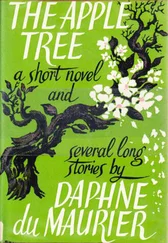“I’d root for her, that’s what I’d do. I’d pack her a nice lunch in her lunch bucket and send her off to make B-Seventeens.”
“Not your own daughter, you wouldn’t.”
“Shirley’s my daughter-in-law, or will be, and I’m behind her a hundred percent.”
“In-law’s not the same. Blood is thicker than water.”
“Blood nothing. I’d do it myself it we had a War Plant here.”
“You’d do what? Rivet?”
“As good as any ‘Rosie.’”
“You’d get that pretty braid of yours caught in some machine.”
“I’d wear me a turban. It’s all the style now.”
“Since when did you care a hoot about style?”
“If it kept my hair from getting caught in a machine.”
“Well, you don’t have to worry, they aren’t gonna make any B-Seventeens in Birney.”
“Maybe I’ll just up and go off with Shirley to where they do. Couple of working girls.”
“You already got your job, woman. And foolin’ aside, I don’t see Shirley Colby weldin’ wings on bombers.”
“Why not? Other girls do.”
“Must be the kind built like a Mack Truck. Shirley, she’s not only small, she’s delicate-like.”
“But, Dad, she’d be good for wiring,” Artie said. “All the articles say ‘the nimble fingers of women’ are good at that, and you don’t have to be big or anything.”
Mom put her hand on Dad’s chest and started tickling her fingers around.
“I got nimble fingers myself,” she said.
“You just keep ’em busy on me , not some B-Seventeen.”
He poked her and she giggled and then they were nuzzling again and Artie went back to the magazine figuring the crisis was past for now, and then the phone rang.
Everyone stopped to listen, counting two longs and one short, which was their ring, and Mom got up to answer.
Dad yawned, and rubbed his stomach.
“Wonder who’s calling on Saturday night,” he said.
“Hello? Yes, this is Mrs. Joseph Garber. Who’s this?”
Her face went suddenly pale and she put her other hand on the phone, gripping it tightly.
“You want me to what?” she asked.
Dad stood up, squinting at her and cocking his head to one side like he was trying to figure out the call.
“Who is it wants something?”
Mom pressed the phone against her chest.
“The Red Cross,” she said. “Wants me to sit down.”
Then she fainted.
Dad sprang across the room to her and Artie jumped off the davenport and grabbed the phone off the floor.
“Hello, this is Arthur Garber, son of Mr. and Mrs. Joseph Garber, brother of Corporal Roy—”
Dad yanked the phone away from Artie with his left hand, still holding his right hand under Mom’s head.
“This is Joe Garber. I’m already sitting down, so tell me whatever you have to.”
Artie held his breath.
“ Wounded in action,” Dad said. “Then he’s alive? He’s all right?”
Mom opened her eyes and pulled herself up to her knees, holding on to Dad.
“‘Shell fragmentation,’” Dad said. “Yes? … But he won’t lose it? … Thank God.… When? … Yes, I understand. Fine. Thank you. Thank you very much.”
Dad put the phone down and pulled Mom against him, holding her tight.
“It’s all right, it’s all right.”
“How bad?” she asked, digging her fingers into Dad’s back.
“He was wounded in the thigh. He won’t lose the leg.”
Dad took hold of Mom’s arms and pried them away, so he could look at her.
“He’s coming home. He’s on his way to San Diego, to the Naval Hospital. He’ll have some skin grafts, and then he’ll be home.”
“When?”
“Maybe only weeks. A matter of weeks.”
“Wahoo!” Artie yelled.
Mom sank back on the floor.
Artie jumped up and grabbed a pillow from the davenport and lifted Mom’s feet up onto it.
“What are you doing?” she asked, raising up again.
“Putting your feet up is treatment for shock. I learned it in Scouts.”
“I don’t need my feet up,” she said, pulling her legs back and then sitting up on them. “I need to be on my knees.”
“What’s that for?” Artie asked.
“For giving thanks to God,” she said.
She bowed her head, and Dad and Artie scooted around so they too were on their knees beside her.
The three of them knelt there on the living room rug, each one saying his own prayer in silence. After a while Dad reached out one hand to Mom and one hand to Artie and they were linked, together, in thanks, and then Dad quietly said, “Amen,” and they all stood up and hugged.
“To think,” Mom said, “‘a matter of weeks.’”
Artie suddenly rushed to the closet and yanked out his coat.
“I gotta go tell Shirley,” he said.
Mom and Dad both started talking at him.
“Be careful how—”
“Button up before you—”
That was all he heard before he was out the door.
The ticket booth at the Strand was dark. Artie went in the lobby and looked around quickly. The only person there was the Usher, but it wasn’t Foltz. Billy Shavers, this tubby kid who played snare drum in the Band, was stuffed in the red and black outfit, one of the gold buttons open at the stomach, letting the white of his shirt poke out. He was eating a Mars Bar and reading a Captain Marvel.
“Hey, Billy, you the Usher now?”
Without looking up, Billy pointed to his gold-buttoned, bursting jacket.
“I ain’t Admiral Nimitz.”
“So did Foltz leave town, or what?”
“All I know is Old Man Risley offered me Usher, four bits an hour.”
“Hey, Billy, that’s great! Congratulations and salutations!”
Artie figured it was all some kind of Wartime miracle, like a story in the Saturday Evening Post . Just as Roy is coming home a wounded hero, his 4-F challenger has skulked away in defeat. Probably he gave up on making out with a loyal girl like Shirley; maybe Shirley finally just laid down the law and told him to get lost.
“So Billy, did Shirley Colby go home? She’s not in the booth.”
Billy pointed a chocolate-stained finger to a coat hanging on the door of the ticket booth.
“Coat’s still here.”
“Maybe she’s watching the movie?”
“Dunno.”
“Well, is it okay if I go in and see the end while I wait for her?”
Billy shrugged.
“Madame Curie discovers radium is how it ends.”
“Well, I’ll go look. If you see Shirley, will you tell her I’m in there, and got something real big to tell her?”
“How big?” Billy asked, stuffing the last of the Mars Bar down his gullet, “Six inches?”
“You always got your mind in the gutter?”
“Takes one to call one.”
Artie shook his head in disgust and walked into the darkened movie. He slid into the back row and sank down in his seat. Greer Garson was Madame Curie, working away in the laboratory, wearing a white coat like scientists and druggists have, and her husband, Walter Pidgeon, was helping her out. They both looked pretty pooped, probably from staying up all night year after year trying to discover radium. It was hard to get charged up about it if you missed most of the movie, so Artie just leaned back and looked at the screen, not even concentrating. He had run all the way over like it was the hundred-yard dash, and he figured he was even more pooped than Walter Pidgeon was in the movie. He closed his eyes.
Shirley Colby was wearing a white lab coat, and pouring some bubbly potion into a test tube. She wasn’t in the radium lab, but the weird, secret kind with all the zigzaggy fiendish modernistic machinery where they always brought Frankenstein back to life again. There was a clap of thunder, a streak of lightning, and the guy who was strapped to the table broke his bonds and started stalking toward Shirley, but instead of being Frankenstein, the guy was Clarence Foltz. Shirley screamed, Foltz let out a yelp, and then the two of them were moaning and talking some kind of gibberish.
Читать дальше












